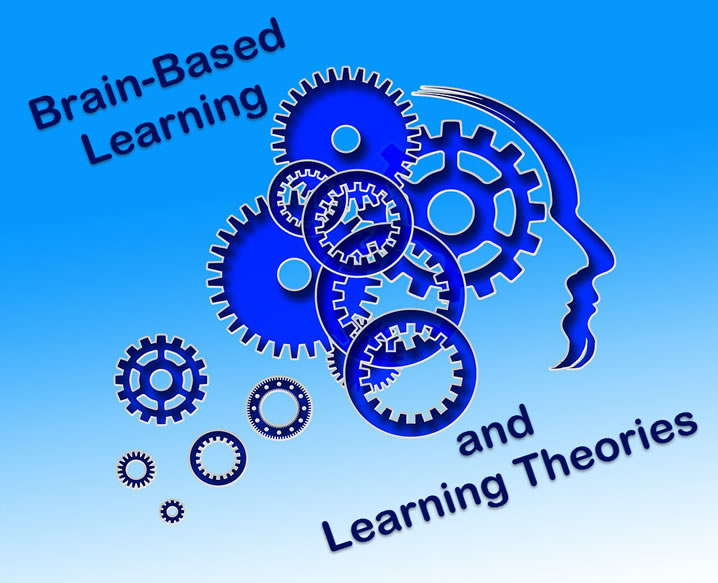Brain-Based Learning and Learning Theories
See also Math Education Research and a Plethora of Committee and Government Reports

Brain-Based Learning and Learning TheoriesSee also Math Education Research and a Plethora of Committee and Government Reports |
 |
Summaries
- Brain-Based Learning Highlights - by Andrea Spears and Leslie Wilson
- What You Should Know about Your Brain - by Judy Willis. For students. 3 pages. Some technical information along with 'what you can do.'
- Guiding Principles for Brain-Based Education: Building Common Ground Between Neuroscientists and Educators - by Eric Jensen.
- Brain-Friendly Learning for Teachers - by David A. Sousa, from ASCD
- 11 Rules for Engaging Students' Brains - A nice (infographic) summary from brain-based learning research (source).
- Brainrules.net - 12 rules nicely organized
- Mindset - Book (2015) by Carol Dweck, world-renowned Stanford University psychologist.
- Six Tips for Brain-Based Learning - 1. Create a Safe Climate for Learning, 2. Encourage a Growth Mind-set, 3. Emphasize Feedback, 4. Get Bodies and Brains in Gear, 5. Start Early, 6. Embrace the Power of Novelty.
- Overview of Brain-based Education - very nice article by Leslie Owen Wilson.
- The 12 Brain/Mind Principles of Natural Learning developed by Renate and Geoffrey Caine
- The Divided Brain - RSA cartoon video on the two sides of the brain, and the importance of using both.
Websites and Articles
- YouCubed - Focuses on the Growth Mindset. Their mission is to "Inspir[e] Math Success for all Students through Growth Mindsets and Innovative Teaching." Headed up by Jo Boaler, at Stanford University. Has 9 findings about brain science and lots of courses and resources.
- Resources on Learning and the Brain - list of lists from edutopia
- How The Memory Works In Learning - by Dr. Judy Willis, from TeachThought. Nice summary for teachers.
- Judy Willis blog - Neurologist and Teacher.
- How The Brain Works–And How Students Can Respond - from TeachThought
- inside-the-brain.com - blog. Has a weekly neuroscience update.
- 10 Brain-Based Learning Laws That Trump Traditional Education by Jeff Hurt
- How to get - and keep - the brain's attention in any learning environment. The brain is hard-wired to notice 4 things: Novelty, Contrast, Meaning, and Emotion. By Sharon Bowman.
- BrainFacts.org
- Reticular activating system - RAS.
- The Virtues of Daydreaming And 30 Other Surprising (And Controversial) Research Findings About How Students Learn
- See Willingham section in the American Educator journal. From AFT.
- I Am What I Choose To Become: Mindset Monday - 2 minute video on the power of the growth mindset.
- @anniemurphypaul - Author who write on learning and the brain
- @DTWillingham - Daniel T. Willingham writes for AFT's American Educator "Ask a Cognitive Scientiest."
- @JoBoaler - Big proponent of the growth mindset. On the faculty at the Stanford Graduate School of Education.
Infographics